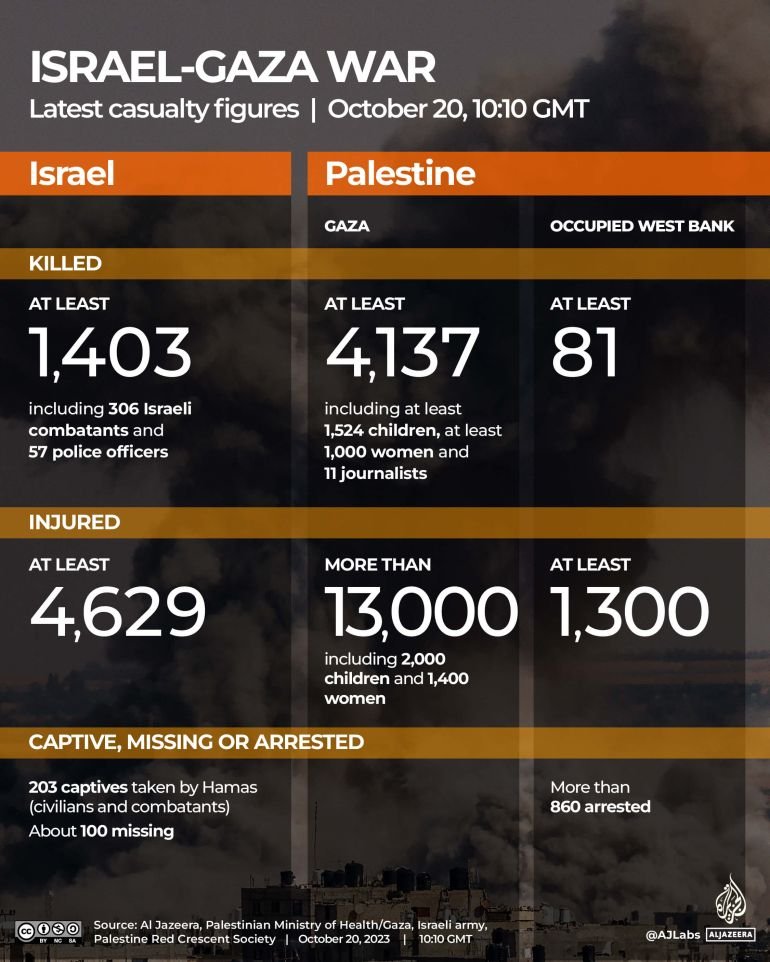Hamas’ recent attack on Israel and the subsequent declaration of war by Israel’s Prime Minister Benjamin Netanyahu has resulted in over 5,000 deaths between both nations so far. Sadly, this violence and destruction is likely to continue, inevitably resulting in countless more innocent lives being lost.

War. What is it Good For?
Many are drawing similarities between this war and the war in Ukraine, arguing that the destruction occurring is due to the actions of leaders who have no problem using their citizens as pawns in their deadly war games.
Unfortunately, this is nothing new, as Major General Smedley Butler pointed out in his 1933 speech on interventionism: “War is just a racket. A racket is best described, I believe, as something that is not what it seems to the majority of people. Only a small inside group knows what it is about. It is conducted for the benefit of the very few at the expense of the masses.”
In 1933, information was much harder to come by. But, with how connected the world is today, we are able to gather and analyze information at a much faster rate, enabling the “masses” to draw conclusions about what benefits “the very few” may be gaining from the wars they orchestrate.
Since the start of the Russia-Ukraine war, the U.S. has allocated over $110 billion in aid for Ukraine. This is a lot of money, even for a country that controls the world’s reserve currency. In April, 2023, however, U.S. investigative journalist Seymour Hersh alleged that Ukrainian president, Volodymyr Zelenskyy has been embezzling millions from this aid. He reports that “one estimate by analysts from the Central Intelligence Agency put the embezzled funds at $400 million last year.” If Hersh’s findings are true, then this is a prime example of the “racket” MajGen Butler was referring to.
In the Israel-Hamas conflict, things are unfortunately not much different. According to former CIA analyst Larry Johnson, U.S.-supplied weapons, likely obtained through the black market, are being used by Hamas forces. Johnson added that “there are government officials and corporations that also benefit economically from [the black market sales of weapons].” Unsurprisingly, at least 51 U.S. politicians in Congress hold stock positions in companies that directly benefit from war in the Middle East, according to data from Unusual Whales.
Looking at these two examples, it’s not hard to figure out that war is good for one thing: making MajGen Butler’s “very few” very rich.
How Does Inflation Relate to War?
In 2016, the Obama administration signed an agreement to give Israel $38 billion in military aid. The funds have been, and will continue to be, distributed to Israel in annual payments through the end of 2028. This agreement replaced an old memorandum of understanding, in which the U.S. gave Israel $30 billion in aid between 2007 and 2018.
Add this on to the $75 billion the U.S. has given Ukraine in the past two years, and that’s over $135 billion in aid that the U.S. has given to just two foreign militaries in the past 15 years. For perspective, this is nothing in comparison to the $5.5 trillion the U.S. has spent in 2023 alone.
Where is all of this money coming from? If history is any indicator, these wars are likely being funded through inflation. In simple terms, the government borrows large sums of money to pay for the widespread killing occurring in other parts of the world. Borrowing in large quantities like this significantly increases the money supply, inherently devaluing the dollars in your bank account. To make matters worse, this process has become cyclical, resulting in further depreciation of the dollar.
There is plenty of evidence to support this claim; all you have to do is look at the change in value of the dollar over the past 15 years. For example, $100 in 2007 would be worth $148 in 2023. You could also take a look at the U.S.’s deficit, which nearly reached $2 trillion in 2023, to see how wars can be funded through inflation.
Despite the historic deficit, Treasury Secretary Janet Yellen has claimed that the U.S. can “certainly” afford to support both Ukraine and Israel. This statement makes it clear that the U.S. has no signs to slow down its war spending any time soon.
According to Earl J. Hamilton, the late economic historian from the University of Chicago, “wars and revolutions without taxation to cover the costs have been the principal causes of hyperinflation in industrial countries in the last two centuries.” After the U.S. Civil War, which was mainly financed by inflation, the Union saw prices increase about 120%. From 1913 to 1920 (World War I) prices increased 120% in the United States, 145% in Canada, 200% in Great Britain, and 400% in France.
Hamilton argues that one of the main reasons inflation is used to fund war is because if they were funded through other means, such as taxation, then the true cost would be revealed to the public and the war would be ended. So instead, governments are complicit in funding war through inflation, which allows them to bypass the need for widespread public approval.
Related reading: Bitcoin Is An Unstoppable Non-Violent Resistance Movement
Bitcoin Makes War Unaffordable
In a perfect world there would be no more war, but as we know, the world is far from perfect. So, we should at least look for better ways to fund these wars. As previously mentioned, one alternative to funding wars through inflation would be funding them through taxation. This poses several problems, however, as taxes can be, and often are, avoided. Moreover, it is much harder to convince the public that a war is beneficial to them when the funding for said war is taken directly out of their pockets.
Another, perhaps more realistic, solution would be funding war with hard money, or money that can’t be printed at will. This is one of Bitcoin’s biggest selling points, as its supply is limited to 21 million.
In a world where bitcoin is the reserve currency, governments would be unable to rob you through inflation. They wouldn’t be able to fund wars that only benefit themselves because they wouldn’t be able to borrow the amount of money needed to do so. The U.S. government’s deficit would actually mean something, as that money would have to be paid back with money that they actually earned; they couldn’t just borrow more money to “settle” their debts. Effectively, if the world were on a bitcoin standard, war would be unaffordable — unless the public decided that it was necessary and worth paying for.
Fixing our monetary system is a huge first step in fixing the world. It is important to understand that money is information, a way of recording how much value you have provided. If someone needs a new roof, they pay you for the service, or value you have provided to them. In turn, you are able to use that money to pay others who provide value to you.
When governments have the ability to create money out of thin air, they are disrupting this system. It gives them the ability to pay others who provide value to them (e.g., weapons manufacturers who produce bombs for use in Gaza), without having provided any value to others in order to earn said money.
Not only does this devalue the money you have actually earned through contributing value, but it also allows governments to act without the need for public approval.
If we take away the government’s ability to print and borrow money without limitation by switching to bitcoin (aka hard money), then the government will also lose their ability to fund wars that the general public wants no part in.
Related reading:










